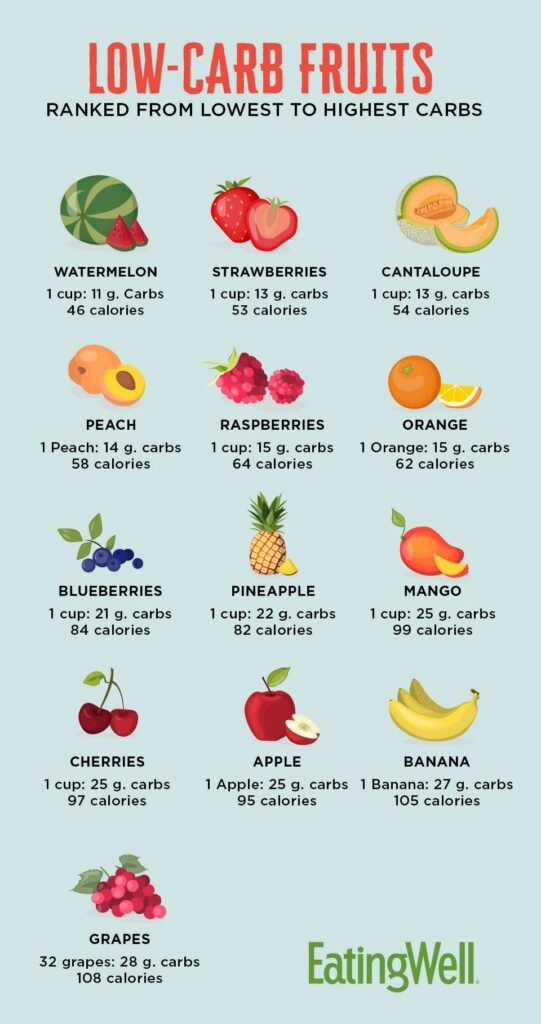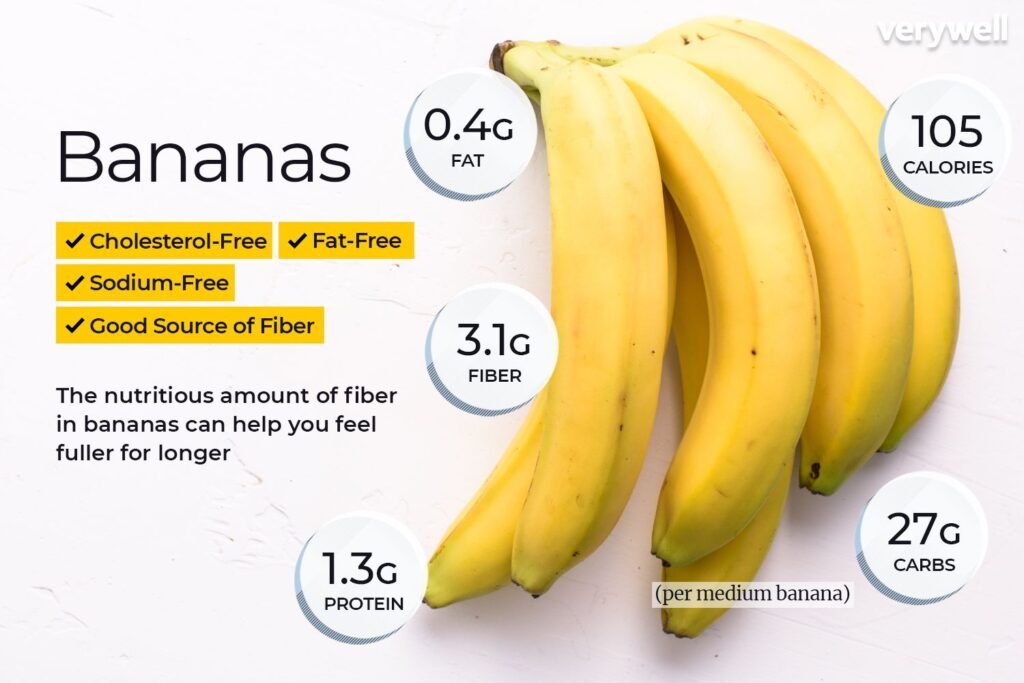Did you know that cherries are not only delicious but also low in carbohydrates? These delectable, bite-sized fruits are packed with flavor and nutrients, making them a perfect addition to your healthy diet. Whether you enjoy them fresh, frozen, or in various dishes and desserts, cherries are a guilt-free indulgence that won’t derail your low-carb lifestyle. So go ahead, indulge in the sweet and tangy goodness of cherries without worrying about your carb intake.
Nutritional Profile of Cherries
Cherries are a delicious and nutritious fruit that have a wide range of health benefits. They are low in calories, carbohydrates, and sugar, making them a great choice for those watching their weight or following a low-carb diet. Cherries also have a high fiber content, which aids in digestion and promotes feelings of fullness. Additionally, they have a low glycemic index, meaning they have a minimal impact on blood sugar levels. Let’s take a closer look at the nutritional profile of cherries and explore the many reasons why you should consider adding them to your diet.
Calories
One of the great things about cherries is their low calorie content. A one-cup serving of cherries contains approximately 90 calories, making them a guilt-free snack option. Whether you enjoy them fresh, frozen, or incorporated into recipes, you can indulge in the sweet and tangy taste of cherries without worrying about excessive calorie intake.
Carbohydrates
Cherries have a relatively low carbohydrate content, making them an ideal choice for individuals following a low-carb or ketogenic diet. A one-cup serving of cherries contains approximately 22 grams of carbohydrates, with most of these coming from naturally occurring sugars. This makes cherries a healthier alternative to high-carb fruits such as bananas or grapes, which can be higher in sugar and carbohydrates.
Fiber
Fiber is an essential nutrient that plays a crucial role in maintaining a healthy digestive system. Cherries are an excellent source of dietary fiber, with a one-cup serving providing approximately 3 grams of fiber. Fiber not only aids in digestion but also helps to regulate blood sugar levels and promote feelings of fullness. Including cherries in your diet can help you meet your daily fiber needs and keep your digestive system happy and healthy.
Sugar
While cherries do contain natural sugars, they are relatively low in overall sugar content compared to other fruits. A one-cup serving of cherries contains approximately 18 grams of sugar, which is considerably less than fruits like mangoes or pineapples. The natural sugars found in cherries are also accompanied by a variety of vitamins, minerals, and antioxidants, making them a healthier choice than consuming refined sugars found in desserts and processed snacks.
Glycemic Index
The glycemic index (GI) is a measure of how quickly a particular food raises blood sugar levels. Cherries have a low glycemic index, which means they have a minimal impact on blood sugar levels. This is due to their low sugar content and high fiber content. When you consume cherries, the sugar is released into the bloodstream gradually, resulting in a slower and steadier rise in blood sugar levels. This makes cherries a suitable choice for individuals with diabetes or those looking to manage their blood sugar levels.
Low Carbohydrate Content of Cherries
Comparison to Other Fruits
When compared to other fruits, cherries have a relatively low carbohydrate content. This makes them an excellent choice for individuals following low-carb or ketogenic diets. While fruits like bananas or grapes are higher in sugar and carbohydrates, cherries offer a lower-carb alternative without compromising on flavor or nutritional value. Incorporating cherries into your diet allows you to enjoy the natural sweetness of fruit while keeping your carbohydrate intake in check.
Beneficial for Low-Carb Diets
Following a low-carb diet can be tricky, especially when it comes to finding suitable snack options. Fortunately, cherries fit perfectly into a low-carb lifestyle. They are not only low in carbohydrates but also packed with essential vitamins, minerals, and antioxidants. Cherries can be enjoyed as a standalone snack or added to salads, smoothies, or desserts for a nutritious and flavorful low-carb treat. Include cherries in your meal planning to add variety and satisfy your sweet tooth while staying on track with your low-carb goals.
:max_bytes(150000):strip_icc()/cherries_annotated2-693d69986ce549429dce02ee5ad8d0ac.jpg)
Impact of Cherries on Blood Sugar Levels
Low Glycemic Index
The low glycemic index of cherries makes them an ideal choice for individuals looking to manage their blood sugar levels. The glycemic index ranks foods on a scale of 0 to 100, with higher values indicating a faster rise in blood sugar levels. Cherries have a GI value of around 22, which is considered low. This means that consuming cherries causes a slow and gradual release of glucose into the bloodstream, helping to prevent spikes and crashes in blood sugar levels.
Steady Release of Glucose
Unlike high-sugar foods and processed snacks that can cause a rapid release of glucose into the bloodstream, cherries provide a steady release of glucose. This helps to stabilize blood sugar levels and prevents the sudden spikes and drops that can leave you feeling tired and lethargic. Including cherries in your diet can help you maintain consistent energy levels throughout the day, making them a great choice for individuals with diabetes or those seeking stable blood sugar management.
Suitable for Diabetics
People with diabetes often need to be mindful of their carbohydrate and sugar intake to maintain stable blood sugar levels. Cherries provide a sweet and satisfying option for individuals with diabetes, as they are low in carbohydrates and have a low glycemic index. Including cherries in a diabetic-friendly meal plan can help ensure a balanced and nutritious diet while still enjoying the natural sweetness of fruit. It is important to work with a healthcare professional to determine the appropriate portion sizes and incorporate cherries into your overall diabetes management plan.
Health Benefits of Cherries
Antioxidant Properties
Cherries are rich in antioxidants, which are compounds that help protect the body against damage from harmful free radicals. Free radicals can accumulate in the body and contribute to inflammation, chronic diseases, and premature aging. The antioxidants found in cherries, such as anthocyanins and vitamin C, help neutralize these free radicals and reduce oxidative stress. Including cherries in your diet can help support overall health and protect against the damaging effects of free radicals.
Anti-inflammatory Effects
Inflammation is a natural response by the body to protect against injury, infection, or illness. However, chronic inflammation can contribute to the development of various health conditions, including heart disease, diabetes, and arthritis. Cherries have been shown to possess potent anti-inflammatory properties, thanks to their high levels of antioxidants and other bioactive compounds. Regular consumption of cherries may help reduce inflammation in the body and promote overall wellness.
Promotes Heart Health
Maintaining heart health is crucial for overall well-being. Cherries can play a beneficial role in cardiovascular health due to their high levels of heart-healthy nutrients. They are a rich source of polyphenols, which are plant compounds that have been linked to a reduced risk of heart disease. Cherries are also low in sodium and high in potassium, which helps support healthy blood pressure levels. Furthermore, the antioxidants found in cherries help protect against oxidative stress, a contributing factor to heart disease. By incorporating cherries into your diet, you can promote heart health and reduce the risk of cardiovascular complications.
Supports Weight Loss
If you’re watching your weight or looking to shed a few pounds, cherries can be an excellent addition to your diet. They are low in calories and high in fiber, which helps promote feelings of fullness and reduce overall calorie intake. The fiber in cherries also aids in digestion and helps regulate blood sugar levels, which can contribute to weight management. Additionally, the natural sweetness of cherries can satisfy cravings for sugary snacks, making them a healthier alternative to processed desserts and snacks.
:max_bytes(150000):strip_icc()/carb_ranks_fruit_revised_b-38126f0783694cb39863499cdeaa050f.jpg)
Cherries as a Snack or Ingredient
Easy to Incorporate into Diet
One of the fantastic things about cherries is their versatility and ease of incorporation into your diet. Whether you prefer to enjoy them on their own as a snack or incorporate them into various recipes, cherries can add a burst of flavor and nutrition to your meals. You can simply wash and eat cherries as a refreshing and nutritious snack, or you can pit and chop them to use as a topping for yogurt, oatmeal, or salads. The possibilities are endless, and cherries make it convenient to add a healthy twist to your favorite dishes.
Versatility in Recipes
Cherries can be used in a myriad of recipes, both sweet and savory. Their natural sweetness pairs well with both sweet and tangy flavors, making them a versatile ingredient in various dishes. Add cherries to smoothies for a burst of flavor and antioxidants, bake them into muffins or pies for a delectable treat, or toss them into salads for a pop of color and taste. You can also incorporate cherries into savory dishes, such as salsas or sauces, to add a touch of sweetness and complexity to the flavors. Experiment with different recipes and discover the countless ways cherries can enhance your culinary creations.
Enjoying Fresh or Frozen Cherries
Cherries are most commonly enjoyed fresh during the summer months when they are in season. However, you can also enjoy the benefits of cherries year-round by opting for frozen cherries. Frozen cherries retain their nutritional value and flavor, making them an excellent option when fresh cherries are not available. They are perfect for adding to smoothies, baking, or making sauces. Whether you prefer fresh or frozen cherries, incorporating them into your diet allows you to enjoy their unique taste and reap the numerous health benefits they offer.
Cherry-Based Products for Low-Carb Diets
Cherry Extracts
Cherry extracts are concentrated forms of cherries that can be used to enhance the taste and nutritional value of various dishes. They are typically made by extracting the juice from cherries and then condensing it down into a concentrated form. Cherry extracts can be used in baking, cooking, or as a flavoring for smoothies or beverages. They provide a burst of cherry flavor without the added sugar or carbohydrates, making them a suitable choice for individuals following low-carb diets.
Cherry Supplements
Cherry supplements, such as cherry capsules or powders, are another option for those looking to incorporate the benefits of cherries into their diet without consuming fresh or frozen fruit. These supplements are made from cherry extract and are often used for their antioxidant and anti-inflammatory properties. Cherry supplements can be a convenient way to ensure you’re getting the beneficial compounds found in cherries, especially if they are not readily available in your area or during the off-season.
Sugar-Free Cherry Flavored Products
For individuals following a low-carb or sugar-free lifestyle, finding cherry-flavored products without added sugars can be a challenge. However, there are sugar-free cherry-flavored options available that can satisfy your cravings while staying within your dietary restrictions. Look for sugar-free cherry syrups, jams, or beverages that use natural sweeteners or sugar substitutes. These products allow you to enjoy the taste of cherries without the unnecessary added sugars or carbohydrates.

Precautions and Considerations
Monitoring Portion Sizes
While cherries are a nutritious and low-carb fruit, it is still important to monitor your portion sizes, especially if you are counting carbohydrates or have specific dietary restrictions. While a one-cup serving of cherries may fit into your daily carbohydrate allowance, it is essential to be mindful of your overall intake and consider the other sources of carbohydrates in your diet. Additionally, portion control is important to avoid excessive calorie intake, as cherries do contain some natural sugars. Keeping track of your portion sizes and balancing your overall carbohydrate intake will help you enjoy the benefits of cherries without exceeding your dietary goals.
Potential for Allergies
Although rare, some individuals may have allergies to cherries. Allergic reactions to cherries can vary from mild to severe and may include symptoms such as itching, swelling, or difficulty breathing. If you suspect you may have a cherry allergy, it is important to consult with a healthcare professional for diagnosis and guidance. If you experience any adverse reactions after consuming cherries, it is recommended to avoid them and seek medical attention if needed.
Interaction with Medications
Like any food, cherries may interact with certain medications. For example, cherries contain natural compounds that can inhibit the breakdown of certain drugs in the liver. This can lead to higher levels of these drugs in the body, potentially causing adverse effects. If you are taking any medications, it is best to consult with your healthcare provider to ensure that consuming cherries will not interfere with their effectiveness or interact with any medications you may be taking.
Conclusion
Cherries are not only a delicious and flavorful fruit, but they are also a fantastic choice for those looking to maintain a low-carb lifestyle or manage their blood sugar levels. With their low calorie, carbohydrate, and sugar content, cherries offer a guilt-free snack or ingredient option. They are abundant in fiber, antioxidants, and anti-inflammatory compounds, making them a valuable addition to a healthy diet. Whether you enjoy them fresh or frozen, as a snack or an ingredient in various recipes, cherries provide numerous health benefits and can be easily incorporated into a balanced and nutritious diet. So go ahead, indulge in the sweet and tangy taste of cherries and reap the rewards of this nutritious fruit.





